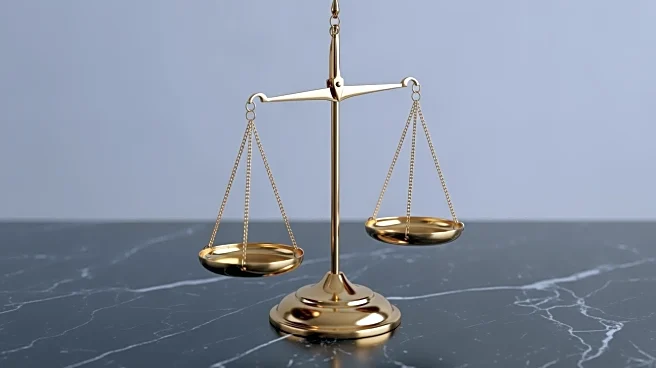What's Happening?
Chancellor Rachel Reeves is under pressure from colleagues to reconsider Labour's manifesto pledge against raising major taxes, as the Treasury faces a significant revenue shortfall. Discussions have emerged about increasing the top rate of income tax or lowering
the threshold, which could be seen as a breach of the manifesto promise not to raise income tax, VAT, national insurance, or corporation tax. The government is exploring alternative methods to increase revenue, such as freezing income tax thresholds in cash terms, but these measures are unlikely to generate substantial funds. Last year, Reeves increased employers' national insurance contributions, arguing it did not directly impact 'working people.' However, further tax increases on top-rate taxpayers are considered ineffective, as they would raise minimal revenue and potentially disincentivize wealth creation.
Why It's Important?
The pressure on Chancellor Reeves to raise taxes highlights the ongoing challenge of balancing public finances while maintaining political commitments. The potential breach of Labour's manifesto pledge could have significant political repercussions, affecting voter trust and party credibility. Economically, raising taxes on higher earners could impact wealth creation and lead to increased tax avoidance strategies. The broader implication is the need for transparent fiscal policies that address revenue shortfalls without disproportionately affecting specific income groups. The situation underscores the importance of sustainable public finance strategies that ensure adequate funding for public services while maintaining economic growth.
What's Next?
If Chancellor Reeves decides to break the manifesto pledge, it could lead to significant political debate and potential backlash from voters and party members. The government may need to consider alternative revenue-raising measures that are perceived as fair and effective. This could involve broader tax reforms that distribute the fiscal burden more evenly across different income groups. The decision will likely influence future budget planning and public spending priorities, with potential implications for social services and economic policy. Stakeholders, including political leaders and economic analysts, will closely monitor the government's approach to addressing the revenue shortfall.
Beyond the Headlines
The debate over tax increases raises ethical considerations about fiscal responsibility and the equitable distribution of tax burdens. It also highlights the challenges of maintaining political promises in the face of economic realities. The situation may prompt discussions about the long-term sustainability of current tax policies and the need for comprehensive fiscal reform. Additionally, the focus on top-rate taxpayers could spark broader conversations about income inequality and the role of taxation in addressing social disparities.















